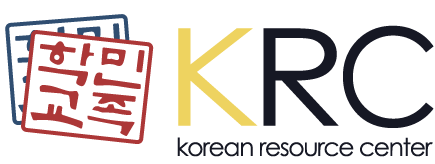California Medicare Part D Language Access Coalition
FOR IMMEDIATE RELEASE
September 27, 2007
press-release-lep-medicare-beneficiaries-beware.doc
CONTACT:
Katharine Hsiao/Anna Rich, National Senior Citizens Law Center, (510) 663-1055, ext. 301 or 305; khsiao [at] nsclc.org
Yvonne Lee, Asian and Pacific Islander American Health Forum, (415) 568-3328; ylee [at] apiahf.org
Caroline Lee, Korean Resource Center, (323) 937-3718; clee [at] krcla.org
Limited English Proficient Medicare Beneficiaries Beware: Medicare Marketing Begins on October 1st
OAKLAND, CA –How many choices are too many? As announced by CMS on Thursday, September 27, Californians on Medicare will again face a dizzying array of options. For 2008, they can choose from among fifty-six different Medicare prescription drug plans, dozens of plans that offer Medicare medical coverage (Medicare Advantage plans) as well as a variety of private health plans targeted at populations with particular special needs. These Medicare beneficiaries should be prepared for full mailboxes on October 1, 2007 - the day that insurance companies that offer private Medicare plans are allowed to begin marketing their 2008 plans.
Medicare prescription drug and Medicare Advantage plans will be mailing marketing materials (almost all of which will be in English) to Medicare beneficiaries in an effort to coax them into joining their plan. Beneficiaries should carefully review information from plans before making any changes to their Medicare coverage. Limited English Proficient beneficiaries who want materials in their language should call the plans and request that translated copies of materials be provided.
Seniors and people with disabilities who are on Medicare can also expect phone calls and home visits from sales agents eager to boost enrollments in their plan. Over the last year there have been numerous reports of aggressive, often illegal marketing by private Medicare plans and their agents. “In the past, plans really aggressively targeted Limited English Proficient beneficiaries with their marketing,” says Ho Tran, Executive Director of the Asian and Pacific Islander American Health Forum. “We know of confused clients who never received information in their primary language. They really didn’t understand what they had signed up for. It was only later that they discovered their new plan didn’t cover their drugs or wasn’t accepted by their doctors.”
The marketing efforts are just the first phase of the annual Medicare enrollment period. At the end of October, beneficiaries will get information (in English) from their current plans informing them of changes in coverage and costs for next year. “Beneficiaries should carefully evaluate the information they get from their plans to decide whether their current plan will still work for them in the next year” says Caroline Lee, Health Access Advocacy Director of the Korean Resource Center in Los Angeles. “If the plan has changed and is no longer a good fit, beneficiaries can switch to a new plan anytime from November 15th through December 31st.”
In deciding whether or not to join or switch plans, beneficiaries should carefully examine whether the plan covers their drugs. If they are considering joining a Medicare Advantage plan, they need to find out whether the plan is accepted by their current doctors. In all cases, they should look carefully at how much the plan will cost them. Beneficiaries should consult local community based organizations and Health Insurance Counseling and Advocacy Programs (HICAPs) when making decisions about their Medicare coverage.
“Medicare beneficiaries must be very careful,” says Katharine Hsiao, Directing Attorney at the National Senior Citizens Law Center. “Plans like to market themselves to sound better than they really are. The potential for fraud is only magnified when plans fail to provide information in other languages. Beneficiaries should consult with someone they trust – a doctor, an independent pharmacist, a local community group, a HICAP counselor – before making decisions about their Medicare coverage for 2008.”
The California Medicare Part D Language Access Coalition is a coalition of advocacy and service providers working to improve access to Medicare Part D for limited-English proficient beneficiaries. Some of the members are the Asian Pacific Islander American Health Forum, the California Immigrant Policy Center, the California Pan-Ethnic Health Network, the Center for Health Care Rights, the Health Rights Hotline, the Korean Resource Center, the National Senior Citizens Law Center and the Southeast Asia Resource Action Center. For more information on Medicare Part D see http://www.nsclc.org/areas/medicare-part-d.
###
[delicious]Medicare+PartD+english[/delicious]
